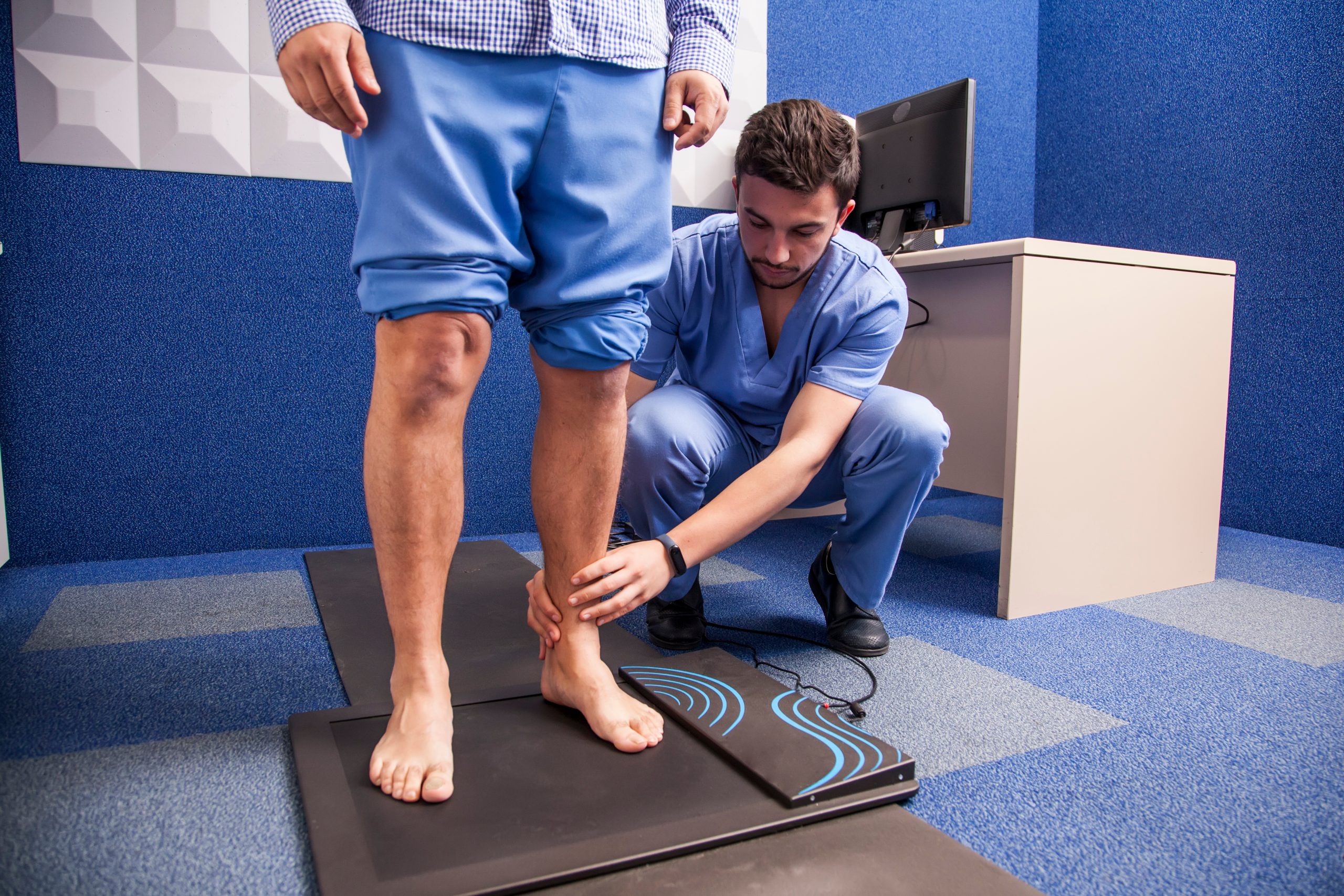You may not know it, but many postural problems stem from poor plantar alignment.
This statement makes a lot of sense when you consider the whole body. After all, it is the feet that must support our body’s weight and maintain its balance.
Of course, other musculoskeletal components are important in maintaining good posture, but the feet are still essential.
Good posture starts with your feet! Let’s take a look at the ways in which the feet have a direct influence on the overall posture of the body.
What foot problems can cause a change in my posture?
The feet are the foundation of the complex network of joints, muscles, tendons and ligaments that make up the postural system.
Because plantar information helps to align the body position, a slight structural change can disrupt the posture.
Foot deformities that can negatively influence posture include, among others:
- Flat or hollow feet
- Heel spurs
- Plantar fasciitis
- Metatarsalgia
- Hammer toe
- Hallux valgus (bunions)
This is the case with disorders such as:
● Plantar warts
● The appearance of corns or calluses
● Heel fissures
● Athlete’s foot
These problems do not always cause postural abnormalities, but they must still be treated promptly to avoid them.
What types of pain appear as a result of poor posture?
A foot that is abnormal causes more than just localized pain, especially when it changes your natural posture.
If not corrected in time, it causes postural pain that can be felt in related joint and muscle structures.
The development of the following conditions is often related to changes in posture:
● Osteoarthritis
● Pain in the ankles, knees, hips and lower back
● Goose foot tendonitis
● An abnormal arch of the back (hyperlordosis)
● Unbalancing of the pelvis
● Asymmetrical lower limbs (functional short leg)
Misalignment of the body affects your overall health in many other ways, including stress and fatigue.
That’s why it’s important to consult a podiatrist quickly to correct your plantar deformities.
Why are my feet deformed?
Several factors can potentially cause an alteration in the morphology of your feet.
Some of these include:
- Hypersupination or hyperpronation
- Regularly wearing shoes with little support, such as high heels
- A training technique unsuited to the particularities of your feet
- Wearing shoes that are too narrow or too wide
- Excess weight
There may be more subtle factors that contribute to changing the configuration of your feet.
The podiatrist is able to identify them using sophisticated diagnostic tools.
How the podiatrist can assist with your posture
While the feet aren’t the only factors responsible for maintaining good posture, they do play a major role.
If you suspect that your feet may be the cause of postural imbalance, a consultation at a podiatry clinic could be very beneficial.
The podiatrist will first perform a series of analyses to determine the cause of the imbalance.
This is usually done with the help of tests like:
- Biomechanical exam
- Postural evaluation
- 2D or 3D scanning
- Foot ultrasound imaging
- Digital radiography of the foot
Once the source of the problem has been identified, the podiatrist is able to propose the appropriate treatment.
This treatment is generally focused on:
- Foot orthotics
- Manual foot therapy
- Foot care
Your podiatrist may also suggest shoes that are better suited to the morphology of your foot, or strengthening exercises.
PiedRéseau: for the effective management of postural pain
The health of your feet should be a priority.
Especially knowing that a plantar defect is likely to cause long-term postural problems. Don’t neglect your plantar deformities, contact a PiedRéseau clinic.

